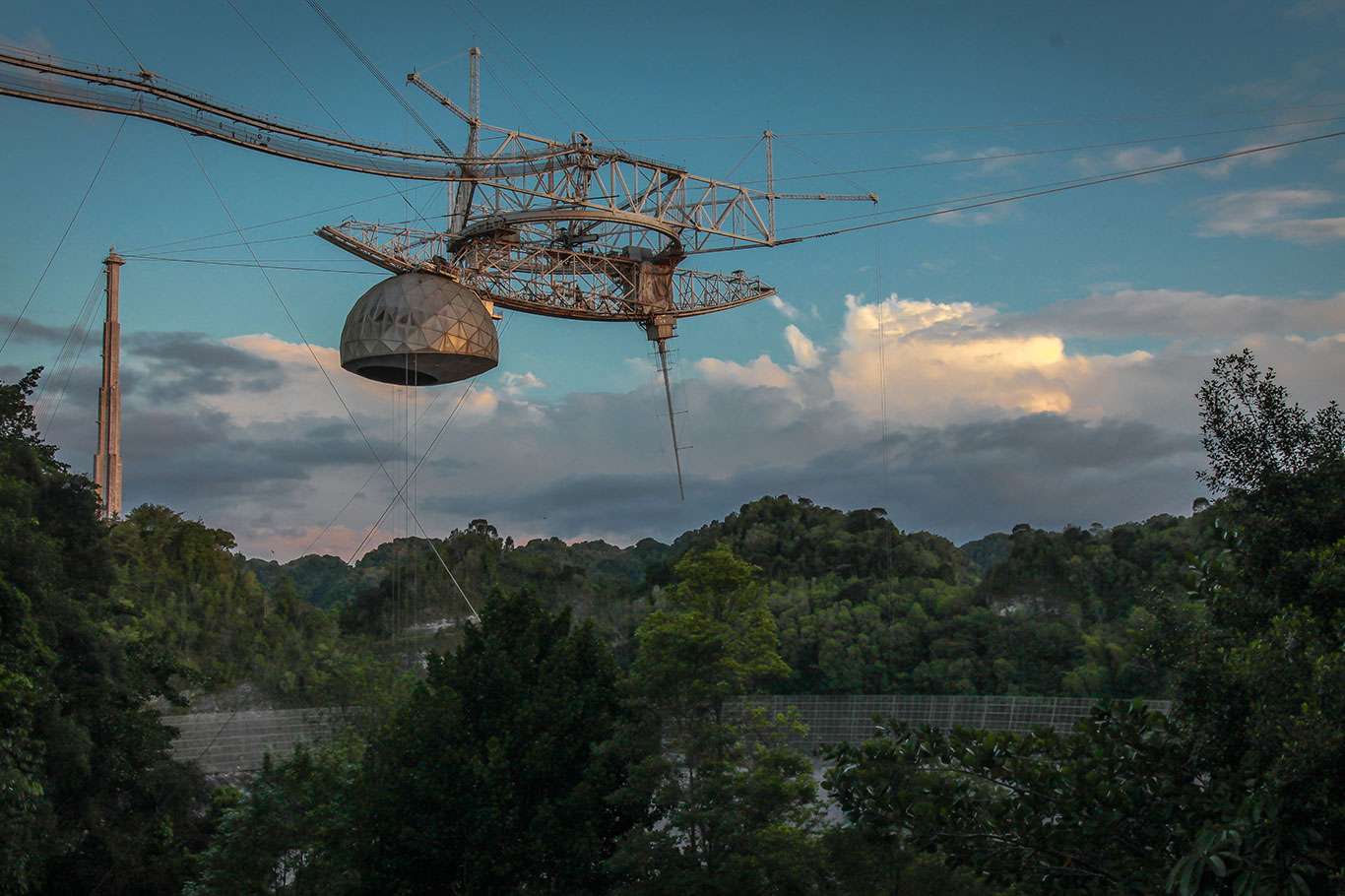Arecibo Observatory’s 305-meter telescope collapses


The instrument platform of the 305-meter telescope at Arecibo Observatory in Puerto Rico fell at approximately 7:55 a.m. AST on Tuesday, The National Science Foundation announced in a statement.
“We are saddened by this situation but thankful that no one was hurt,” said NSF Director Sethuraman Panchanathan.
“When engineers advised NSF that the structure was unstable and presented a danger to work teams and Arecibo staff, we took their warnings seriously and continued to emphasize the importance of safety for everyone involved. Our focus is now on assessing the damage, finding ways to restore operations at other parts of the observatory, and working to continue supporting the scientific community, and the people of Puerto Rico,” he added.
The investigation into the platform’s fall is ongoing. Initial findings indicate that the top section of all three of the 305-meter telescope’s support towers broke off. As the 900-ton instrument platform fell, the telescope’s support cables also dropped.
Additional details regarding the collapse at the Arecibo Observatory’s 305-meter telescope are available now at NSF's site: https://t.co/dCYLolC22L
Engineers are on-site. Top priorities are maintaining safety at the site and assessing damage. pic.twitter.com/9mqnBx3dcU
The Arecibo Telescope was a 305 m (1,000 ft) spherical reflector dish built into a natural sinkhole at the Arecibo Observatory which was completed in November 1963. A cable-mount steerable receiver was mounted 150 m (492 ft) above the dish, and several radar transmitters for emitting signals.
For more than 50 years, the Arecibo Telescope was the world's largest single-aperture telescope, surpassed in July 2016 by the Five-hundred-meter Aperture Spherical Telescope (FAST) in China. (ILKHA)
LEGAL WARNING: All rights of the published news, photos and videos are reserved by İlke Haber Ajansı Basın Yayın San. Trade A.Ş. Under no circumstances can all or part of the news, photos and videos be used without a written contract or subscription.
Türkiye is set to mark a historic milestone in its space program with the official commissioning of Türksat 6A, the nation's first domestically produced communication satellite, today at 1 p.m. local time (11 a.m. GMT).
Researchers at Shanghai-based Fudan University have developed the fastest known semiconductor charge storage device, capable of achieving a record-setting programming speed of 400 picoseconds — equivalent to 25 billion operations per second.
China marked a milestone in its space program early Tuesday with the successful launch of a new set of internet technology test satellites from the Jiuquan Satellite Launch Center in the Gobi Desert.
Chinese scientists have unveiled a groundbreaking spy camera that can identify individual faces from space, marking a significant leap in surveillance technology and raising urgent concerns about global privacy and security.